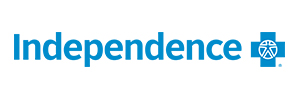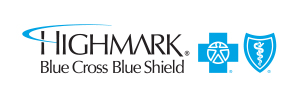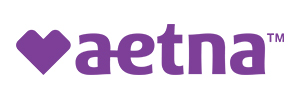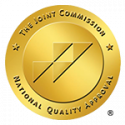Giving up drinking can be a life-changing decision that brings numerous benefits beyond improved health. While many people know the physical advantages of sobriety, such as better liver function and reduced risk of disease, several unexpected benefits come with ditching alcohol. This article will explore ten surprising advantages that can significantly enhance your quality of life.
1. Enhanced Mental Clarity
One of the first things you may notice when you quit drinking is improved mental clarity. Alcohol can cloud your judgment and hinder cognitive functions, but sobriety allows your mind to operate at its full potential. You’ll find it easier to focus, make decisions, and think creatively.
2. Better Sleep
Alcohol disrupts sleep patterns and can lead to poor-quality rest. Drinking alcoholic beverages does not aid in sleep and can hurt sleep quality. This is due to its interference with the sleep cycle, particularly REM sleep, which is crucial for restful sleep. By abstaining from alcohol, you’ll experience improved sleep, increased energy levels, and feeling refreshed.
Poor sleep quality can lead to more serious health risks over time (like obesity, high blood pressure, and anxiety). Quitting alcohol is one of the best things you can do to help your sleep schedule and overall quality of life.
3. Weight Loss
Alcohol is surprisingly high in calories. Take a vodka martini, for example. It packs in around 130 calories. It may not sound like a lot, but imagine having three of those every night. That adds up to a whopping 2730 extra calories per week, which is more than a lot of people’s daily calorie intake. Quitting drinking often leads to weight loss, as you eliminate those extra empty calories and reduce the likelihood of late-night snacking or unhealthy food choices.
4. Enhanced Relationships
Alcohol can strain relationships due to impaired judgment and behavior when intoxicated. Sobriety allows you to communicate more effectively, making stronger and more meaningful connections with friends and loved ones. Better listening skills, increased patience, and clear-headed communication can all lead to an improved quality of relationships with those around you. When you’re not tuning out when someone is speaking to you or are able to manage your temper during a disagreement, you’ll become a better communicator and conversational partner.
5. Financial Savings
Drinking can be expensive, especially if it involves frequent bar trips or purchasing costly alcoholic beverages. Quitting drinking can lead to significant financial savings that can be redirected toward more fulfilling pursuits. You’ll be surprised at how much money you spend on unnecessary items such as cigarettes or snacks while drinking. According to Ria Health, having three or more daily drinks can add up to $5,475 or more each year! Individuals who quit drinking can save a significant amount of money annually by removing the expense of alcohol from their budgets.
6. Increased Productivity
Quitting drinking can have many unexpected benefits, especially in your career. Many people who struggle with alcoholism don’t realize just how much of an impact it has on their productivity and performance in the workplace. Alcohol consumption can lead to procrastination, impaired cognitive abilities, and decreased motivation. All of these things can add up to a significant decrease in job performance whether that’s in the office or at home. Sobriety often results in a more focused and efficient work life, potentially boosting your career prospects.
7. Improved Physical Fitness
Alcohol can deplete the body of vital nutrients and hinder proper absorption by the intestines. Additionally, individuals who abuse alcohol or have alcohol use disorder often skip meals, resulting in a smaller intake of necessary fuel. When you quit alcohol, you can start to leave the cycle of fatigue and malnourishment behind. Also, without the empty calories and dehydrating effects of alcohol, your body will be better equipped for physical activity. Many people find that quitting drinking motivates them to pursue a healthier, more active lifestyle.
8. Rediscovering Hobbies
Alcohol often takes up a significant amount of time and attention. When you quit drinking, you may find yourself rediscovering old hobbies or discovering new interests that bring you joy and fulfillment. You’ll also have better clarity of mind to enjoy them!
9. Emotional Stability:
Since it’s a depressant, alcohol can exacerbate mood swings and emotional instability. Sobriety can lead to improved emotional well-being and a better ability to handle life’s challenges with resilience and composure. As discussed above, you may also see your relationships improve due to quitting alcohol, which will help you find more emotional peace.
10. Personal Growth:
Quitting drinking is a journey of personal growth and self-discovery. It allows you to confront and address underlying issues, develop healthier coping mechanisms, and achieve greater self-fulfillment. A common reason behind alcohol abuse is the desire to dull or numb pain from past mistakes or regrets. Over time, therapy can be a valuable tool to address those emotions and help you better participate in your own life by having better self-awareness.
Giving up drinking can transform your life in unexpected and incredibly positive ways. From enhanced mental clarity and more robust relationships to financial savings and personal growth, the benefits of sobriety extend far beyond the initial decision.
Are you or a loved one wanting to break free of alcohol or substance addiction? Our Intensive Outpatient Programs (IOP) or Partial Hospitalization Programs (PHP) are here to help. Visit our website to learn more about how these programs can provide the support and guidance needed to embark on a successful journey toward sobriety. We’ll be waiting to hear from you.










